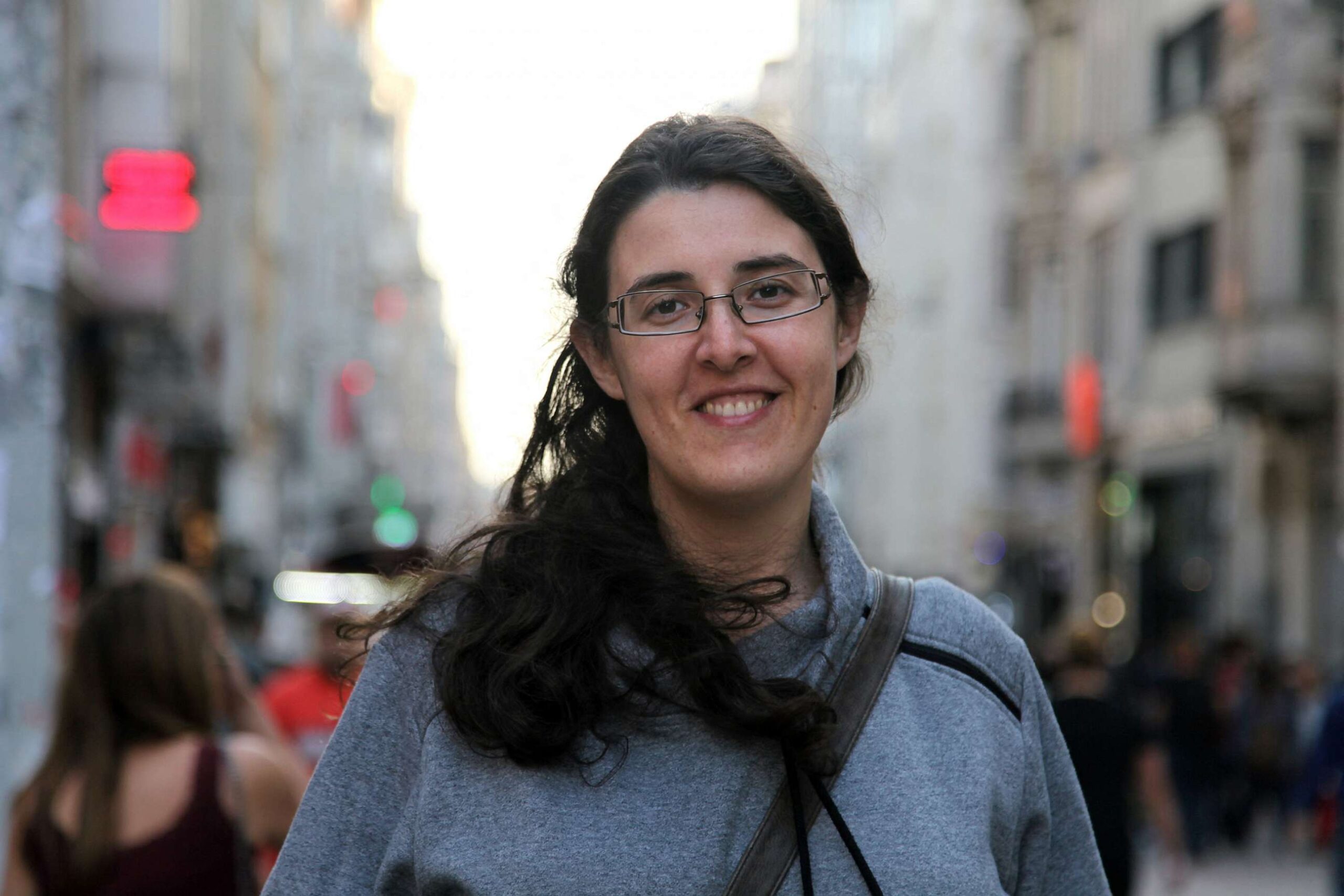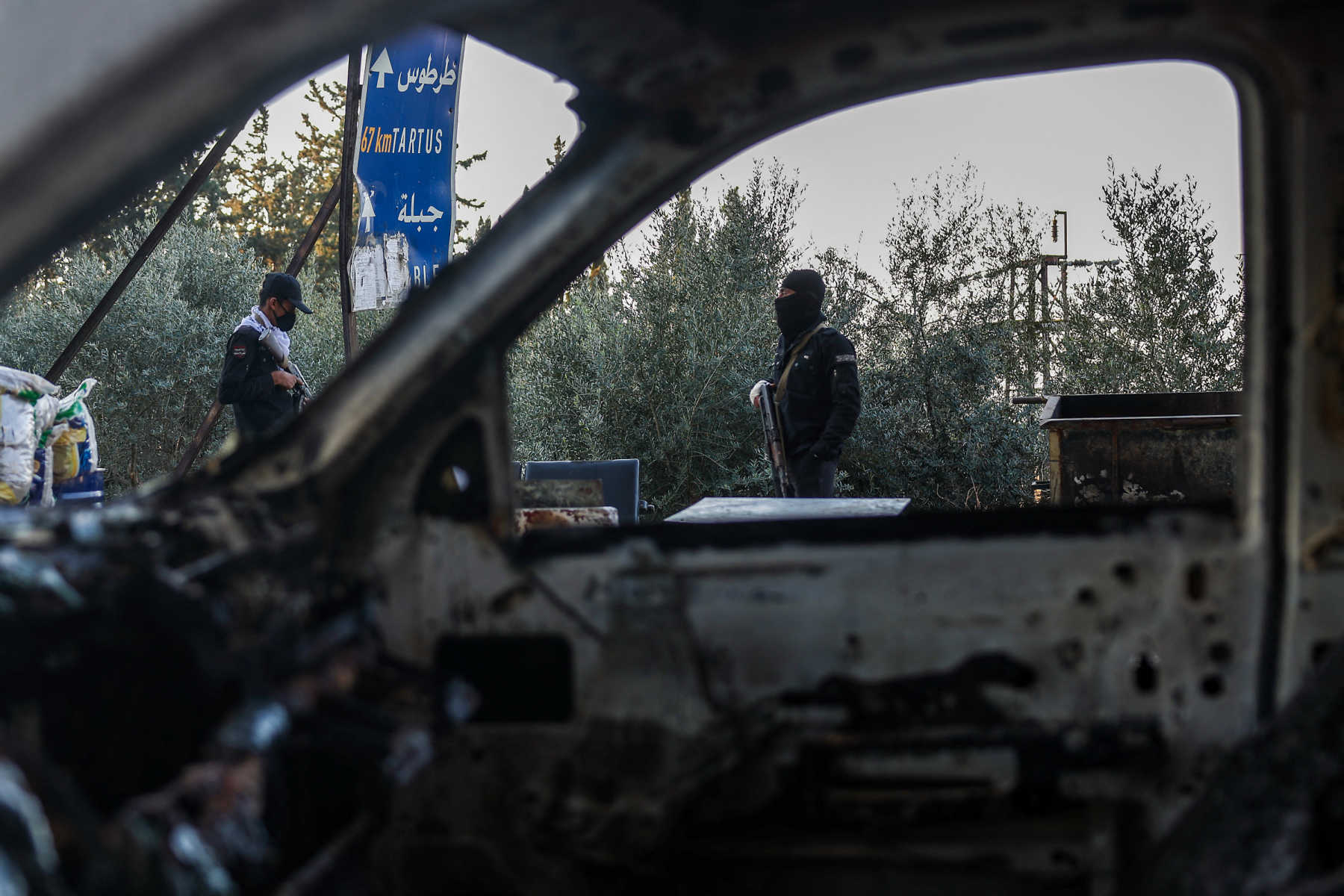Rula Salameh is a veteran Palestinian journalist, community organizer and Just Vision’s Education and Outreach Director in Palestine.
I turned on Al Jazeera on May 11 and heard the news: Shireen Abu Akleh, the renowned Palestinian journalist, had been shot and killed by an Israeli soldier while reporting in the West Bank. Shireen, killed? I've known her for decades. She was one of the first journalists to join the Palestinian Broadcasting Corporation, which I helped found in the early 1990s. I had the privilege of witnessing Shireen's career grow and her reputation as an extraordinary journalist soar.
I've seen countless international journalists come to Palestine, burn out from the grind of covering the ongoing brutality of Israel's occupation, and leave after a few years. Many of my Palestinian colleagues also left the country. But Shireen spent 30 years in the trenches, devoting her life to the dangerous and draining work of reporting on Palestine, even as the situation on the ground grew progressively bleaker.
Shireen's work was an expression of her commitment and love for her people and her home, and of her belief in the importance of documenting the full story of Palestine for the world to see. Shireen was right there during dark and dangerous times. I vividly remember her courageous reporting when Israeli forces attacked President Yasser Arafat's compound in Ramallah in the spring of 2002, and when they razed a large swath of Jenin refugee camp to the ground shortly after. But she made sure that her viewers understood that Palestine was more than suffering and oppression. She reported on stories of pre-1948 Palestinian villages, and on olive harvests; she covered our successes and victories. She not only covered pain, she also covered hope—and this brought us hope. Since her killing, I've followed with amazement the unprecedented love and admiration flowing to Shireen from every corner of Palestine. The love she poured into her work was felt so widely and was mutual.
The shock of Shireen's murder has begun to subside, but in its place, I'm feeling a level of dread beyond anything I've experienced before.
Shireen's murder lays bare a horrifying reality: The longer Israel's 55-year occupation continues, the bolder our occupiers become.
- Rula Salameh
Shireen is far from the first journalist to be attacked or killed by the Israeli army. In the past four years alone, the Israeli military injured 144 Palestinian journalists, according to Reporters Without Borders. Fifty have been killed since 2000, and 26 journalists have been arrested in the just the past two years, the majority held in draconian "administrative detention," in which Israeli authorities can detain Palestinians indefinitely, without charges. Last month, the International Criminal Court received a formal complaint from the International Federation of Journalists concerning Israel's systemic targeting of journalists. Just days before Shireen's murder, Israeli soldiers viciously beat and kicked journalist Basel al-Adra as he was documenting Israel's ongoing demolition of Palestinian homes and displacement of Palestinian communities in the South Hebron Hills.
But there was an unprecedented level of callousness with which Shireen was killed while covering an Israeli military raid in the early morning of May 11. Shireen had just arrived at Jenin refugee camp with at least three colleagues, all wearing helmets and protective vests marked "Press." Footage from the immediate moments after Shireen was shot reveal—and the reporters with her affirm—that the street was deserted. With no possible justification, it seems that an Israeli soldier pulled the trigger, sending a bullet below Shireen's ear into her skull. Shireen's producer, Ali Al-Samudi, was shot and wounded.
New video evidence reported by CNN this week corroborates the accounts of eyewitnesses who were with Shireen when she was shot. Two videos of the scene of the shooting obtained by CNN show "that there was no active combat, nor any Palestinian militants, near Abu Akleh in the moments leading up to her death." What's more, the videos "suggest that Abu Akleh was shot dead in a targeted attack by Israeli forces."
Shireen's murder lays bare a horrifying reality: The longer Israel's 55-year occupation continues, the bolder our occupiers become. Daily indiscriminate violence, home demolitions, erasure of entire communities, arrests and imprisonment with farcical military trials, ongoing seizures of our land, restrictions on our movement, control over all aspects of our life, which human rights organizations from B'Tselem to Human Rights Watch to Amnesty International have deemed apartheid—all this has become background noise, as if it's "business as usual."
This brazenness is intricately connected to the impunity that Israel has come to rely on, both related to its violations and how it spins them.
Immediately after Shireen's killing, Israeli Prime Minister Naftali Bennett and other members of his government claimed without evidence that Palestinian militants "likely" were the ones who shot her. They cited a contextless video released by the Israeli army that showed Palestinian gunmen shooting down an alleyway in Jenin. After this video was debunked by B'Tselem's field researcher in Jenin—who easily proved that it had been filmed in an entirely different location—Israel then stated that the army may have shot Shireen, but only because she was standing with armed Palestinian militants—another falsehood also quickly disproved. More recently, Israeli officials have stated that they can't possibly determine who shot Shireen unless the Palestinian Authority relinquishes the bullet to Israel for forensic investigation.
As a Palestinian journalist, if I can't count on my international peers to expose propaganda and hold power to account, who will have my back?
- Rula Salameh
None of this surprises me. What does disappoint and alarm me, however, is that in the wake of the murder of one of the most prominent and respected Palestinian journalists, many of Shireen's fellow international journalists continued to amplify this Israeli propaganda. I vacillated between anger and incredulity as I read English-language reporting giving Israel's claims equal or more credence than eyewitness statements from Shireen's journalistic colleagues. I cringed while reading headlines that trotted out obfuscating terminology describing Shireen's murder, such as "clashes" and "died." Though many outlets later updated their reporting, the damage of reinforcing Israel's fog of war narrative was already done. As a Palestinian journalist, if I can't count on my international peers to expose propaganda and hold power to account, who will have my back?
The Biden administration is shamefully not insisting on conducting an independent U.S. investigation, despite the fact that Shireen was also an American citizen, and despite Israel proving time and again its inability to investigate itself—including earlier this year after Omar Asad, a 78-year-old Palestinian American man in the occupied West Bank, died after being detained by Israeli soldiers, who pulled him from his car, bound and gagged him, and left him in a cold construction site. In the case of Shireen's killing, Israel will proceed with an internal, whitewashed "operational" investigation, having announced that there will be no immediate criminal investigation. Even if a criminal investigation does eventually occur, it will likely absolve the perpetrators, or give them minor slaps on the wrist.
Shireen's funeral in East Jerusalem heart-wrenchingly underscores the extent to which this pattern of impunity has emboldened Israeli abuse. Israeli riot police assaulted the mourners, firing stun grenades and kicking and beating the pallbearers, causing them to drop one end of Shireen's casket. It's not Israel's blatant disregard for permitting us to bury our icons with dignity that most frightens me. It's that Israel knew its actions would be captured by dozens of photojournalists and seen worldwide on live television—and simply didn't care.
Shireen's murder may herald an open season on Palestinian journalists. That first step of the Israeli propaganda playbook, to delegitimize Palestinian victims by fabricating claims connected to "terrorism," may very well be used as cover to escalate attacks on all of us. The Israeli army spokesperson has already seeded this idea, brazenly stating after Shireen's murder that Palestinian journalists are "armed with cameras." The truth that Shireen spoke, that any Palestinian journalist with integrity tries to speak, is dangerous to our occupiers. Killing Shireen—a shining example of a journalist speaking truth to power—silences the stories and stifles the voices that she worked so diligently to amplify.
This is why, as I continue reporting on Israeli demolitions of our homes and arrests of our children, Shireen's murder will be on my mind, and fear will permeate my work. Unless Israel faces meaningful accountability, Shireen's death will not only be a tragedy that the entire Arab world mourns, it could also be the nail in my coffin and that of all other Palestinian journalists. Perhaps most chillingly, it could terrify us into silence, at a time when our reporting on the escalating abuse of Israeli military rule is needed more than ever.
















![Security forces loyal to the interim Syrian government stand guard at a checkpoint previously held by supporters of deposed president Bashar al-Assad, in the town of Hmeimim, in the coastal province of Latakia, on March 11, 2025. Syria's new authorities announced on March 10, the end of an operation against loyalists of deposed president Bashar al-Assad, after a war monitor reported more than 1,000 civilians killed in the worst violence since his overthrow. The Syrian Observatory for Human Rights said the overwhelming majority of the 1,068 civilians killed since March 6, were members of the Alawite minority who were executed by the security forces or allied groups. (Photo by OMAR HAJ KADOUR / AFP) / “The erroneous mention[s] appearing in the metadata of this photo by OMAR HAJ KADOUR has been modified in AFP systems in the following manner: [Hmeimim] instead of [Ayn Shiqaq]. Please immediately remove the erroneous mention[s] from all your online services and delete it (them) from your servers. If you have been authorized by AFP to distribute it (them) to third parties, please ensure that the same actions are carried out by them. Failure to promptly comply with these instructions will entail liability on your part for any continued or post notification usage. Therefore we thank you very much for all your attention and prompt action. We are sorry for the inconvenience this notification may cause and remain at your disposal for any further information you may require.”](https://dawnmena.org/wp-content/uploads/2025/04/syria-22039885951-350x250.jpg)










![Security forces loyal to the interim Syrian government stand guard at a checkpoint previously held by supporters of deposed president Bashar al-Assad, in the town of Hmeimim, in the coastal province of Latakia, on March 11, 2025. Syria's new authorities announced on March 10, the end of an operation against loyalists of deposed president Bashar al-Assad, after a war monitor reported more than 1,000 civilians killed in the worst violence since his overthrow. The Syrian Observatory for Human Rights said the overwhelming majority of the 1,068 civilians killed since March 6, were members of the Alawite minority who were executed by the security forces or allied groups. (Photo by OMAR HAJ KADOUR / AFP) / “The erroneous mention[s] appearing in the metadata of this photo by OMAR HAJ KADOUR has been modified in AFP systems in the following manner: [Hmeimim] instead of [Ayn Shiqaq]. Please immediately remove the erroneous mention[s] from all your online services and delete it (them) from your servers. If you have been authorized by AFP to distribute it (them) to third parties, please ensure that the same actions are carried out by them. Failure to promptly comply with these instructions will entail liability on your part for any continued or post notification usage. Therefore we thank you very much for all your attention and prompt action. We are sorry for the inconvenience this notification may cause and remain at your disposal for any further information you may require.”](https://dawnmena.org/wp-content/uploads/2025/04/syria-22039885951-360x180.jpg)









